Steven C. GeorgeEdward Teller Distinguished Professor and Chair, Department of Biomedical Engineering, University of California-Davis Steven C. George, M.D., Ph.D. is a Professor of Biomedical Engineering at the University of California, Davis. He received his bachelors degree in chemical engineering in 1987 from Northwestern University, M.D. from the University of Missouri School of Medicine in 1991, and Ph.D. from the University of Washington in chemical engineering in 1995. He was on the faculty at the University of California, Irvine for 19 years (1995-2014) where he pursued a range of research interests including pulmonary gas exchange, lung mechanics, vascularizing engineered tissues, and microphysiological systems. The NIH FIRST award in 1998 and the CAREER and Presidential Early Career Award for Scientists and Engineers (PECASE) from the National Science Foundation in 1999 have previously recognized his work. While at UCI, he served as the William J. Link Professor and founding Chair of the Department of Biomedical Engineering (2002-2009), the Director of the Edwards Lifesciences Center for Advanced Cardiovascular Technology (2009-2014), and was the PI on a T32 predoctoral training grant from the National Heart Lung and Blood Institute. In 2014 he transitioned to become the Elvera and William Stuckenberg Professor and Chair of Biomedical Engineering at Washington University in St. Louis, and in 2017 moved to the UC Davis. He was elected a fellow in the American Institute of Medical and Biological Engineering (AIMBE) in 2007, a fellow of the Biomedical Engineering Society in 2017, has published more than 140 peer-reviewed manuscripts, and co-founded two early start-up companies. His work is currently funded by grants from the NIH that focus on creating tissue engineered models of the cardiac, pancreas, bone marrow, and cancer microenvironments using induced pluripotent stem cell and microfabrication technology. |
Kevin HealyJan Fandrianto and Selfia Halim Distinguished Professorship in Engineering, University of California, Berkeley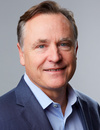 Kevin E. Healy, Ph.D. is the Jan Fandrianto and Selfia Halim Distinguished Professor in Engineering at the University of California at Berkeley in the Departments of Bioengineering, and Materials Science and Engineering. He served as Chair of the Department of Bioengineering from 2011 to 2015. He is a thought leader and innovator working at the interface between stem cells and materials science to develop dynamic engineered systems to explore both fundamental biological phenomena and new applications in translational medicine. His group currently conducts research in the areas of: bioinspired stem cell microenvironments to control stem cell lineage specification and self-organization into microtissues or organoids; bioinspired systems for regenerative medicine; biological interfaces; and, microphysiological systems for drug development, gene editing, and environmental toxicity screening. Professor Healy is an elected Fellow of AIMBE, AAAS, FBSE, BMES, and recently received an Alexander von Humboldt Foundation Award. He has chaired the Gordon Research Conference on Biomaterials and Biocompatibility, and has been honored with the 2011 Clemson award for outstanding contributions to basic biomaterials science. He is a named inventor on numerous issued United States and international patents relating to biomaterials, therapeutics, stem cells, and medical devices, and has founded several companies to develop these systems for applications in biotechnology and regenerative medicine. |
Roger KammCecil and Ida Green Distinguished Professor of Biological and Mechanical Engineering, Massachusetts Institute of Technology (MIT)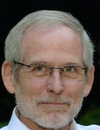 Kamm is currently the Cecil and Ida Green Distinguished Professor of Biological and Mechanical Engineering at MIT, where he has served on the faculty since 1978. Kamm has long been instrumental in developing research activities at the interface of biology and mechanics, formerly in cell and molecular mechanics, and now in engineered living systems. Current interests are in developing models of healthy and diseased organ function using microfluidic technologies, with a focus on vascularization. Kamm has fostered biomechanics as Chair of the US National Committee on Biomechanics (2006-2009) and of the World Council on Biomechanics (2006-2010). Kamm currently directs the NSF Science and Technology Center on Emergent Behaviors of Integrated Cellular Systems. He is the 2010 recipient of the ASME Lissner Medal (American Society of Mechanical Engineering) and the 2015 recipient of the Huiskes Medal (European Society of Biomechanics), both for lifetime achievements, and is the inaugural recipient of the ASME Nerem Medal for mentoring and education. He was elected to the National Academy of Medicine in 2010. Kamm is co-founder of two companies, Cardiovascular Technologies and AIM Biotech, a manufacturer of microfluidic systems for 3D culture. |
Alysson MuotriProfessor, Director of the Stem Cell Program, University of California-San Diego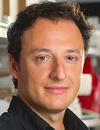 PhD in Genetics by University of Sao Paulo, Brazil. Postdoctoral Work at The Salk Instutitue with neural stem cells and neurogenesis. Professor at UC San Diego, Dept. Pediatrics and Molecular & Cellular Medicine. |
Holger SchmidtNarinder Kapany Professor of Electrical Engineering, University of California-Santa Cruz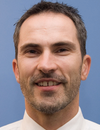 Holger Schmidt received the Ph.D. degree in electrical and computer engineering from the University of California Santa Barbara and served as a Postdoctoral Fellow at M.I.T. He is currently the Narinder Kapany Chair of Optoelectronics and Distinguished Professor of Electrical and Computer Engineering at UC Santa Cruz. He directs the W.M. Keck Center for Nanoscale Optofluidics and has served as the Associate Dean for Research in the Baskin School of Engineering. His research interests cover a broad range in photonics and integrated optics, including optofluidic devices, nanopore sensors, nano-magneto-optics, spintronic devices, and ultrafast optics. He has authored more than 400 publications, several book chapters, and co-edited the CRC Handbook of Optofluidics. He is a Fellow of the National Academy of Inventors, the IEEE and the Optical Society of America. He received an NSF Career Award, a Keck Futures Nanotechnology Award, and the Engineering Achievement Award by the IEEE Photonics Society. |
Alice SoragniAssistant Professor, University of California Los Angeles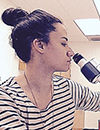 Alice Soragni is an Assistant Professor in the Department of Orthopedic Surgery at UCLA and a member of the Jonsson Comprehensive Cancer Center. Originally from Italy, she received her PhD in Physical Chemistry from ETH Zürich and a postdoctoral fellowship with David Eisenberg (UCLA) before starting her independent lab in December 2016 at UCLA David Geffen School of Medicine. |
Hervé TiriacAssistant Researcher, University of California-San Diego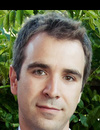 Dr. Tiriac received his Ph.D. from UC San Diego studying pre-mRNA splicing and transcription with Dr. Tracy Johnson. Herve’s research focuses on developing systems for precision medicine that may be utilized in the fight against pancreatic cancer. Herve did his postdoctoral fellowship with David Tuveson at Cold Spring Harbor Laboratory where he collaborated with Hans Clevers to establish protocols for PDAC organoid generation and testing. |




